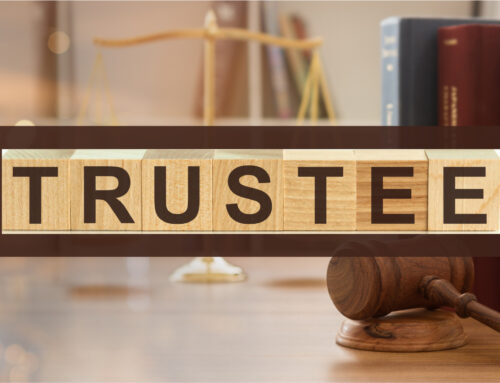[VIDEO TRANSCRIPT] Hi friends, I’m Jack Helgesen and I’m here to talk to you about the fascinating topic of the difference between wills and trusts and I’m going to try to keep it basic and understandable. So let me start with wills. I think you’re going to understand that a little easier. A will is simply a document which meets some legal formalities but the purpose of a will is straightforward. You need to appoint someone to manage your affairs, you need to give an inheritance plan – that is who gets what – and if you have minor children, you should name a backup guardian for your minor children. Or if you’re taking care of an adult who needs a guardian you can name an adult guardian. So that’s the essence of a will. What I want to do is talk about some ideas that you may not recognize.
First of all, a will has no value until death, that is, it can’t help you. It’s meaningless, it’s just a piece of paper and it doesn’t do anything until the moment you die. And then suddenly when you die, it becomes all-important. So let me talk about the property that goes through a will because that’s not well-understood either. Most people think that if they name property in a will, if they say “all my property goes through the will,” that will happen. No, it doesn’t. Some property comes out at the moment of your death and never makes it through the will. And that property we refer to as “jointly owned property.” Many of you own houses in joint-tenancy and the moment you die, it goes to your spouse or whoever the joint-tenant is. We have the same arrangements in financial accounts, investment accounts. We also have beneficiary designations so that an account goes according to the beneficiary designation. All those transfers happen before the property goes through the will so it never gets there. So when we say “all your remaining property,” that’s after all these automatic transfers.
But the rest of it, then the rest of it is called a “probate estate.” See my bucket here? And that, we take to the court. A will can only be given effect when it goes to a judge and the judge makes orders. That process is called a “probate.” Now, some smaller estates can avoid it, but we don’t need to get into the ways of that. But generally, a probate is required to put the will into effect. Some people don’t like that. It gets expensive. One of the problems is the judge sends out letters inviting objections and when your family or your heirs get those notices, they tend to raise grievances and so we don’t like that.
A lot of people prefer to leave their estate in a trust. I have a trust and most of my friends have trusts. So let me talk with you just a moment about what we call living trusts. Living trusts are trusts that you create during your lifetime and they’re revocable and changeable. We love those trusts. About 99 percent of the trusts we write are these types of living trusts. But the word “trust” throws people and they don’t know what it means. It’s not very mysterious. Let me explain to you in basic simple terms what a trust is.
I have a friend named Craig. And I can go to Craig and I can give Craig $10,000 and say that “I want you to hold this money and I want you to invest it safely. And when I die, I want you to call my oldest son and I want you to give it to him for a specific need. Will you do that?” And if Craig says “yes, I’ll do that,” then we have a trust. That’s a trust arrangement. My friend has accepted to do something with my property after I’m gone. And he is what’s referred to as a “trustee,” because I’m putting my trust in him. So, that’s a trust. We get more complicated – our trusts are written today and we can complicate them but the idea is simple.
What’s in a trust? Whatever you put into it is in a trust. So here’s my house – pink house – and we advise our clients to put their real estate in there because real estate left out of trusts cause probates. We also put our financial assets in – here’s my piggy bank – in fact in my trust we have transferred our financial and investment accounts. So we put that in the trust and the trust gets whatever we put into it.
In fact, if you don’t put stuff in a trust, you’ve wasted the whole idea of a trust. Some people have empty trusts, or as lawyers call them, unfunded trusts and that should never be.
So what about the probate of the stuff in the trust? Well, it doesn’t happen. The trust lives on, the trust never dies, and therefore, the trust never has a probate. I could die but I’m just a trustee of the trust – a beneficiary of the trust right now. So the only thing that would happen upon my death is the trustee changes and that’s all written in there so that my children step in after my wife and I are gone. That’s the essence of a trust. The idea of no probate is one of the selling features of a trust.
If you have questions about how it applies to you, call us or text us, we’re glad to help. Let’s talk about what you need. Thanks friends, see you later. [END OF VIDEO TRANSCRIPT]




Leave A Comment